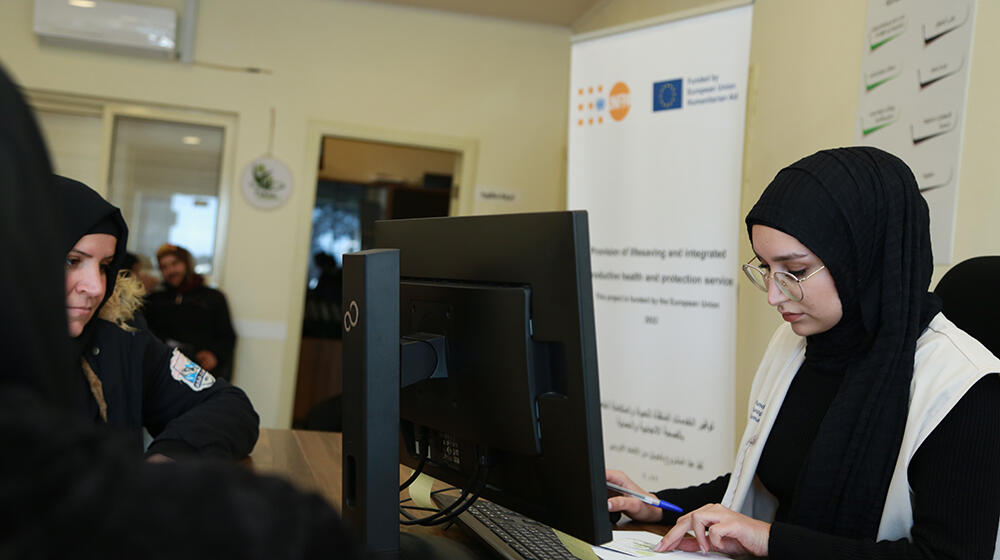Beirut – The European Union (EU) has partnered with the United Nations Population Fund (UNFPA) in Lebanon to ensure that the most vulnerable women and girls have access to affordable, accessible and lifesaving sexual and reproductive health services. Five health facilities and a women and girls’ safe space are currently offering the integrated multiservice to support Lebanese and refugee women and girls who have been affected by the economic crises.
Asma Kurdahi, UNFPA Head of Office, said, “According to a survey conducted by UNFPA Lebanon, 99% of respondents who attended the outreach sessions felt well informed about the assistance and services available, and 100% reported being satisfied with the service provided at the primary health care and community centers funded by EU Humanitarian Aid.
To date, 28,553 women have been reached with SRH/GBV integrated services of which 62% are Lebanese and 48% are Syrian, whereas 6,699 adolescent girls have been supported of which 49% are Lebanese and 48% are Syrian.
Esmée De Jong, head of office for EU Humanitarian Aid in Lebanon said: “Our partnership is making a real difference in the lives of vulnerable women and girls in Lebanon. By integrating support for gender-based violence with sexual & reproductive health services, we are ensuring that those most in need have access to life saving care”.
The EU-supported health facilities have been offering a range of sexual and reproductive health (SRH) services, including antenatal, postnatal care, and family planning in addition to gender-based violence (GBV) services that have been more accessible to vulnerable women and girls.
“What I like about this project is that they don’t separate health from rights… I have the right to get the needed care and support as a woman in case I had experienced violence, and it is my fundamental right to look after my sexual and reproductive health” said Samira, the 41 years old beneficiary.
As part of the integrated model, the facilities are providing case management for gender-based violence survivors in the same location or through referrals, complemented by cash assistance where needed.
“I previously worked in projects that only tackles GBV; we used to conduct awareness raising sessions to women and adolescent girls and that’s it. However, here it’s different; we explain to women and girls about GBV and SRH and then we provide them with related services. You can definitely see the impact when action is done” said Fatima, a case worker under EU funded project.
The project has been promoting the adoption of the sexual and reproductive health/gender-based violence (SRH/GBV) integrated model that aims at reaching women and girls from both host and refugee communities.
UNFPA Lebanon have been implementing the interventions in Beirut, South of Lebanon, and Bekaa through its partners, including the AMEL Association, ABAAD, SALAMA, and Imam Sadr Foundation. UNFPA Lebanon has been providing lifesaving SRH and GBV interventions to women and adolescent girls of all nationalities since 2011, and in 2021 alone, it is estimated that around 34,000 beneficiaries were reached. The UNFPA has been responding to the humanitarian and emergency crisis in Lebanon. Currently, 2.5 million people in Lebanon need humanitarian support.
UNFPA Lebanon continues to adapt its programs to provide SRH and GBV life-saving services to people in need with a focus on women and girls. In 2022 only, UNFPA Lebanon reached 96,109 persons with SRH services and 30,821 persons with GBV services of which 13,170 are adolescent girls and 4,449 are LGBTQ+ individuals supported with various services.
For more information or media inquiries please contact:
Nour Wahid, Communications and Media Officer, UNFPA Lebanon
Tel: +961 70 66 18 76
Email: nwahid@unfpa.org


